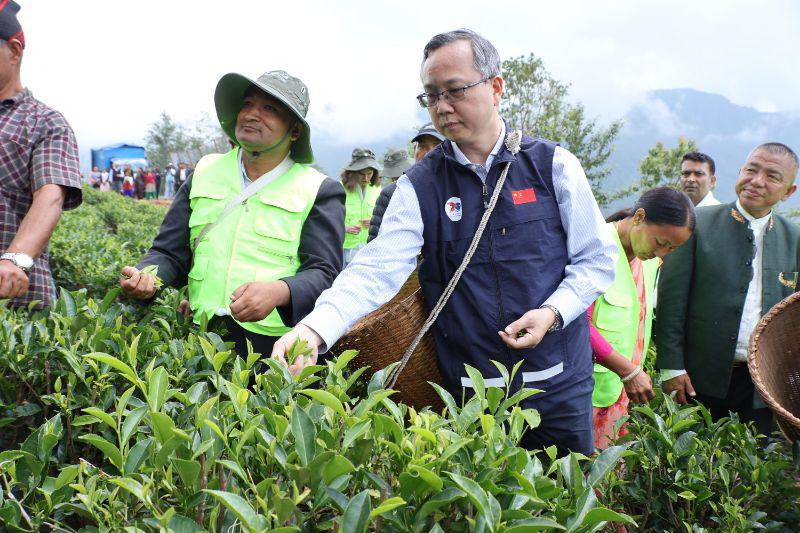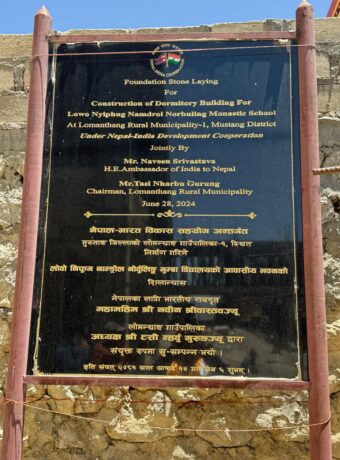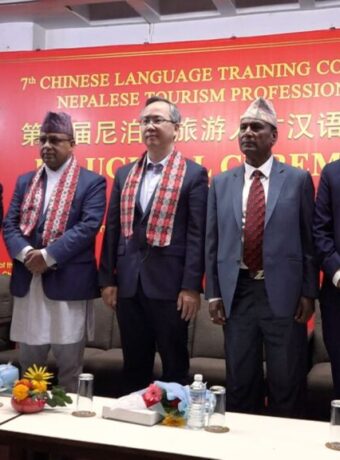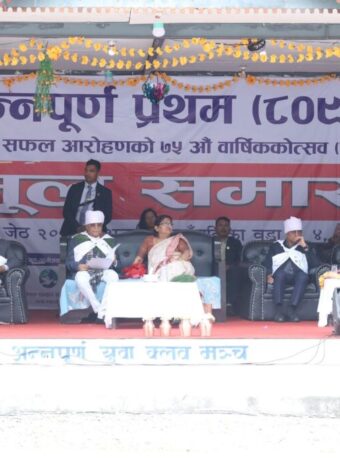China-Supported Tea Project Handed Over to Local Cooperative in Nuwakot
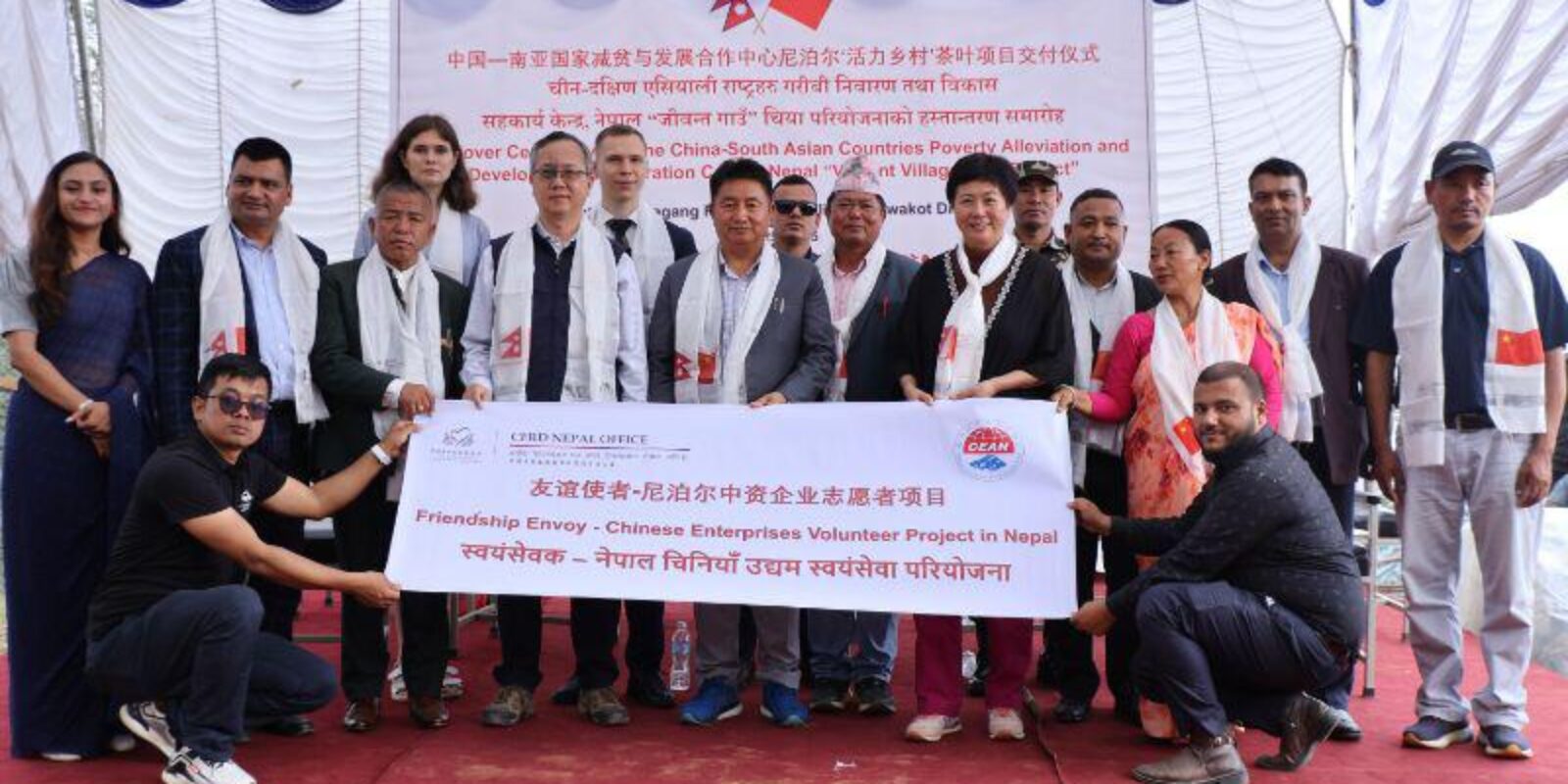
Nuwakot – A newly constructed tea processing factory, supported by the China Foundation for Rural Development (CFRD) under the “Vibrant Village” initiative, has been officially handed over to the Kimtang Organic Tea Cooperative in Myagang Rural Municipality, Nuwakot. The formal handover ceremony marked a significant step in China-Nepal cooperation aimed at rural revitalisation and sustainable agricultural development.
Chinese Ambassador to Nepal, His Excellency Chen Song, presented the “Vibrant Village” plaque to Sarman Tamang, Chairman of the Kimtang Village Tea Cooperative, symbolising the official transfer of the facility for local operation and management. The ceremony was attended by several distinguished guests, including Hon. Bahadur Singh Lama, Chief Minister of Bagmati Province, Dr. Dipendra Shrestha, Member of the Province Policy and Planning Commission, Zou Zhiqiang, Country Director of CFRD Nepal, Aasha Tamang, Chairperson of Myagang Rural Municipality, Shashidhar Ghimire, Chief District Officer of Nuwakot, SP Durga Raj Regmi, Chief of District Police Office, Dr. Bishnu Prasad Bhattarai, Former Executive Director of the National Tea and Coffee Development Board, Kamal Bahadur Tamang, Chairperson of Ward No. 4, Myagang, and Mukti Marasini, Chairperson of Global Cooperation for Development
Local farmers, community members, and nearly 100 villagers were also present. The event included cultural performances by local children as a gesture of gratitude to the Chinese people.
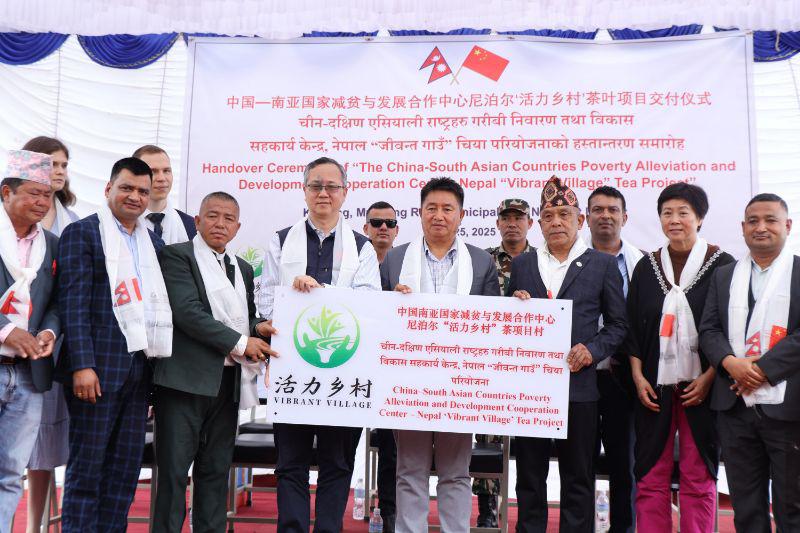
A Model for Rural Development
Under the China–South Asia Poverty Alleviation and Development Cooperation Centre’s “Vibrant Village” initiative, CFRD has implemented two tea assistance workshops in Myagang Rural Municipality (Nuwakot) and Mahankal Rural Municipality (Lalitpur). These projects aim to boost rural development in Nepal through the establishment of fully equipped tea processing factories.
With advanced tea machinery provided by China, Nepali cooperative farmers were taken to China for hands-on training in tea picking, processing, and marketing. Chinese tea experts also visited Nepal to offer on-site guidance. These capacity-building efforts have significantly improved the quality of local tea production and expanded market access.
Boosting the Tea Industry and Rural Economy
In his remarks, Ambassador Chen Song emphasised the project as a successful application of China’s rural development and poverty alleviation experience in Nepal. “Agriculture plays a vital role in Nepal’s economic development, and China’s agricultural experience can offer valuable lessons,” he said. Ambassador Chen also highlighted other sustainable development efforts under the Vibrant Village initiative, including rice cultivation, vegetable farming, and upcoming projects in buffalo and fish farming.
He expressed hope that the Tea Assistance Workshop would uplift the income of Nepali tea farmers and enhance Nepal’s reputation in the global tea market. “This project is the fruit of joint efforts by the peoples of both countries,” he concluded.
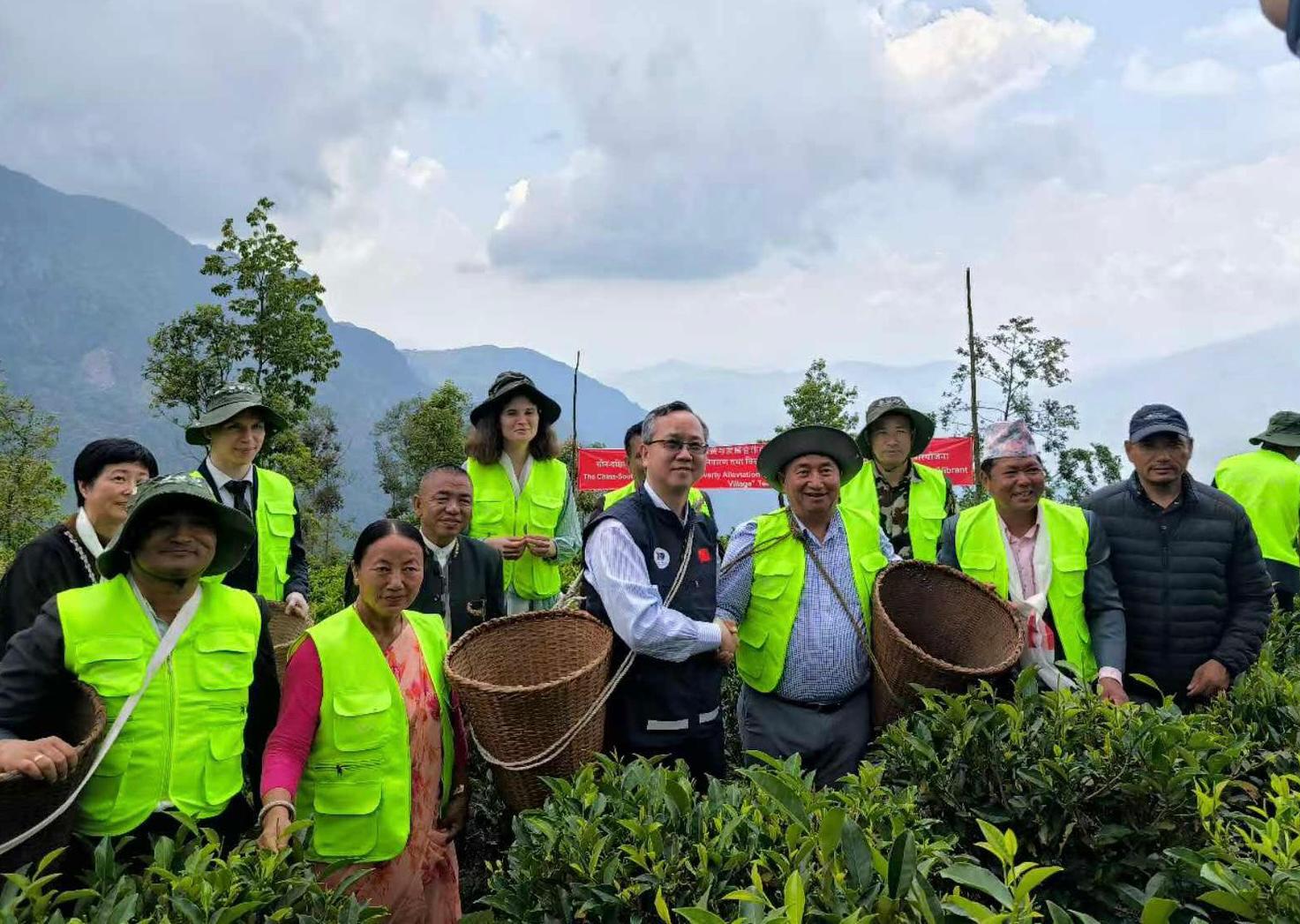
Local and Regional Impact
Chief Minister Bahadur Singh Lama described the handover of the tea factories as a landmark event for Nepal’s rural development, stating that it has already shown impact in three provinces. He praised the project as a replicable model for sustainable industrial growth and Sino-Nepal collaboration in poverty alleviation.
Zou Zhiqiang, CFRD Country Director, reaffirmed the foundation’s commitment to supporting Nepal’s agricultural advancement. She noted recent successes, including the export of Nepali fresh vegetables to Qatar in 2024. “We are working toward a shared future free from poverty and full of prosperity,” she stated.
Local Gratitude and Aspirations
Aasha Tamang, Chairperson of Myagang Rural Municipality, shared reflections on a recent training visit to China, where local farmers gained valuable insights into the tea industry. “We are now planting over 300,000 tea trees,” she announced, expressing optimism for continued Chinese support.
Following the handover, dignitaries toured the tea plantations and participated in tea picking and processing activities. They observed local farmers utilising Chinese machinery, an encouraging sight for the cooperative and community.
Local tea farmers voiced strong determination to maximise this opportunity to enhance both productivity and product quality. They aim to transform Nuwakot into a premier tea production hub in northern Nepal, comparable to Ilam in the east.
